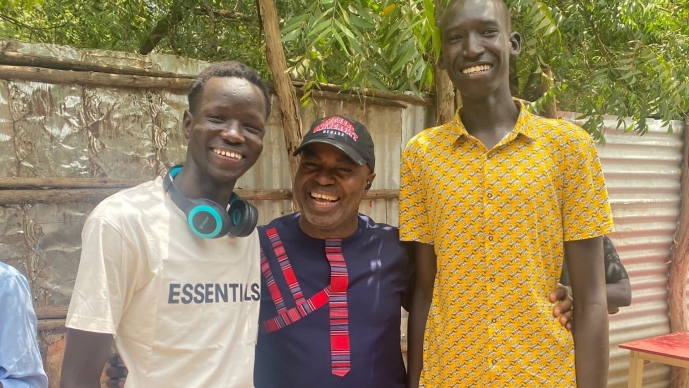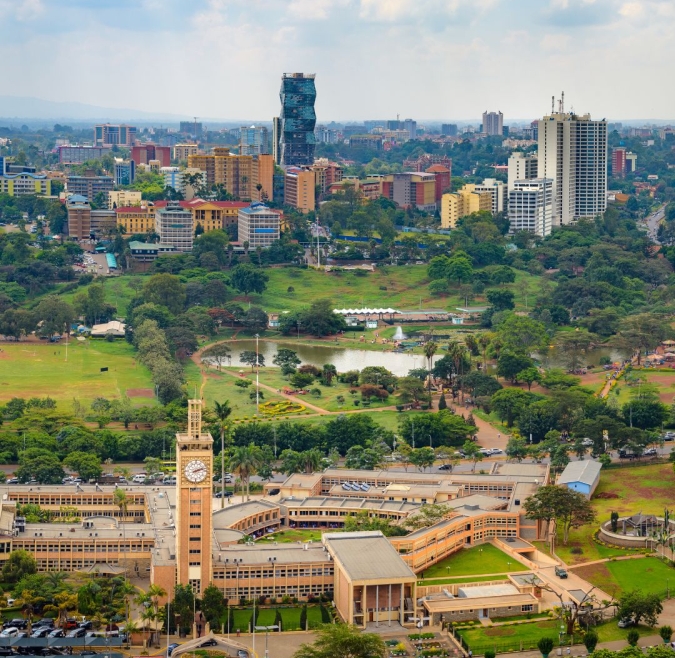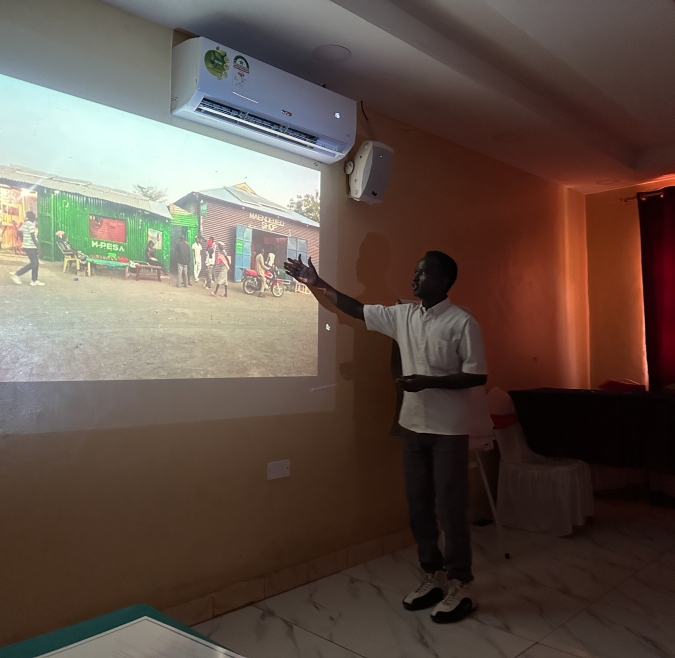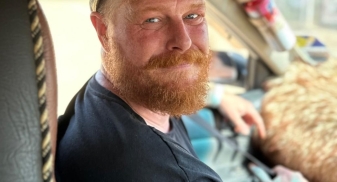Summer: Rutgers-Kenya: Learning from the Refugee Experience in East Africa
The Program
This program will expose students to the lives on contemporary refugees in sub-Saharan Africa, through an immersive class based in both Kakuma refugee camp and Nairobi, the capital of Kenya.
This study abroad program will introduce students to the geo-political, environmental and structural conditions that have contributed to migration and forced displacement in East Africa and the massive expansion of the African refugee population in Kenya. The program will begin in Nairobi where students will be introduced to the regional history and current geo-political conditions that have contributed to Kenya becoming the site of several of the largest refugee camps in the world. The Nairobi phase of the trip will also include visits to game parks and cultural sites in the city. The second phase of the program will take place in the Kakuma refugee camp in Northwest Kenya where we will partner with the OSUN HUBS Connected Learning Initiative as well as Elimisha Kakuma, a refugee founded and led bridging program in the camp which works with refugee students seeking competitive academic scholarships. In Kakuma, students will interact directly with refugee students as participants in a service-learning program to understand their experience in the camp and conduct a community mapping project in tandem with refugee students.

Program Locations

Kenya
Nairobi
Nairobi is a modern, global, African city with a national park within its boundaries.

Kenya
Kakuma
Kakuma is located in the semi-arid Northwestern region of Kenya. The camp was established in 1992 following the arrival of the "Lost Boys of Sudan." It is currently home to over 200,000 African refugees. Kakuma is the Swahili word for "nowhere".
Academics
The program is a 3 credit course offered by the Department of Geography. It will be co-led by a geography faculty member. The course is Africa: Region and People (01:450:351).
Geography is the hosting department, and the course will automatically apply to any students taking a Geography Major or Minor, or the SAS-NB Minor in International and Global Studies. It is cross-listed and pre-approved to count towards the Minor in African Studies offered by Rutgers CAS. It is renewing an existing course - 01:450:351 Africa: Region and People. It should be recognized as an upper level SAS course by all other Rutgers schools, and should be straightforward to transfer to other institutions.
The faculty lead (Paul O'Keefe) has spent approximately six months in total living in Kenya and 18 months living in East Africa. The research background of the faculty lead is environment, development, livelihoods and how they intersect in East Africa. The faculty lead will co-deliver the course with a postdoctoral fellow, Michael Conteh, from the Institute for the Study of Global Racial Justice (ISGRJ), Rutgers Camden. Dr. Conteh, has extensive hands-on experience and interdisciplinary expertise working with refugee populations in the United States and internationally and has also played vital roles in developing and coordinating similar study abroad programs in various regions. English is widely spoken in both Nairobi and the camp in Kakuma, especially among the people students will be interacting with.
Housing and Meals
We will begin in Nairobi for 5 days. Then to Kakuma for 7 days. Then returning to Nairobi for 3 days. In Nairobi we are planning to stay at the Methodist Resort, a venue that has twin rooms for students and space for class meeting. Breakfast will be provided, lunch and dinner will take place as a group but locations will vary. In Kakuma we will be staying at the Cradle Resort, which is just outside the refugee camp. It is within a secure compound and also contains meeting rooms for class presentations. Transportation in Nairobi will primarily be by privately booked minibus. For Nairobi-Kakuma travel we will fly from Nairobi to Lodwar, and take a minibus from Lodwar to Kakuma. While in Kakuma we will hire drivers for transportation within the camp.
Financial Information
Program Costs
| NJ Resident | non-NJ Resident | |
|---|---|---|
| Undergrad | $3650 | $3990 |
| Grad | $3860 | $4180 |
Program Cost includes:
- Tuition
- Airfare
- Housing
- Most meals
- Excursions
- In-country transportation and flight
- Administrative Fees
- Emergency Medical Access Abroad
Out-of-Pocket Costs
| Airfare | Subsidized by MadRose Foundation |
| Meals | $100 |
| Personal Expenses | $200 |
| Total | $300.00 |
Out-of-Pocket Cost includes:
The above costs are estimations and represent the known out-of-pocket costs students encounter during their time abroad.
Some of these expenses will be paid for prior to going abroad, such as an airline ticket, while some of these expenses, such as meals and personal expenses, will be paid in-country as part of your daily expenses. As you plan, you will need to budget these costs and spend wisely throughout your time abroad.

